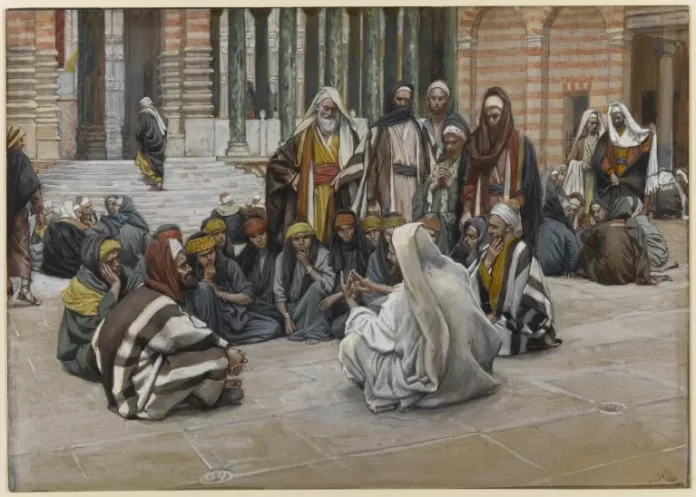
In today’s gospel Jesus makes a sad statement. “A prophet is not without honor except in his own town, among his relatives and in his own home.” This sentence of Jesus has become even a saying later.
Jesus said it after his visit and a sermon in the Synagoge of his own hometown after staring his public ministry. Jesus had prepared for that day for some around 18 years. The last reference about Jesus in the gospels was at his age of twelve. Jesus started his public ministry at thirty. A long preparation and a long waiting to start it properly. But each word and each deed of Jesus was very critically evaluated and discussed by his own people. They were not ready to accept him. That has disappointed Jesus.
We could find three different reactions and attitudes from the people of Jesus’ hometown after they had heard Jesus.
One: people admired the wisdom of Jesus. But they were neither ready to learn from the wisdom of Jesus nor to acknowledge Jesus. Instead they said to one another: where does he has all these? What a wonderful wisdom is given to him? What kind of mighty deeds are done through him?
But they did not want to be enriched through the wisdom of Jesus.
Two: The people started to question the family background of Jesus. They seem to think that Jesus is supposed to be like his other members of the family. They said to one another: Is he the son of Mary and his brothers Jacob, Jose, Jude and Simon. Do his brothers and sisters live among us. It means that the people looked at with prejudice and based on their own ranking of the families. Jesus was supposed to stay in the Oder of ranking which people had determined for him. That was not fare.
Three: The people referred to the job of the family members of Jesus in evaluating the person and the message of Jesus. They knew his father Joseph whose job was of a carpenter. Of course, the job of a carpenter was at that time not a job of a lower ranking. Besides it was not fare to judge Jesus in the name of the job of Joseph.
Although Jesus started his ministry well prepared and gave many signs like that of healing the sick Jesus experienced rejection from the people of his own hometown. The reaction and response of Jesus at the unpleasant situation show the greatness of Jesus. It expresses also the conviction of Jesus about his mission and ministry. We heard in the gospels that Jesus was surprised over the unfaith of the people. But Jesus does not scold, he does not complain, he does not attempt to get accepted by his people. At the same time Jesus does not fail to point out the wrong and inhumane mentality of the people: “A prophet is not without honor except in his own town, among his relatives and in his own home.” Jesus laid his hand on a few sick people and cured them. Then he went to the neighbouring places. That means Jesus wanted to teach only in those places where he was welcome.
The reactions of the people of Jesus’ hometown and Jesus’ reaction to them give us enough information to think about how we react in everyday life and how we can deal with different people and different experiences. Jesus is our role model.
Fr Joseph Pandiappallil MCBS



